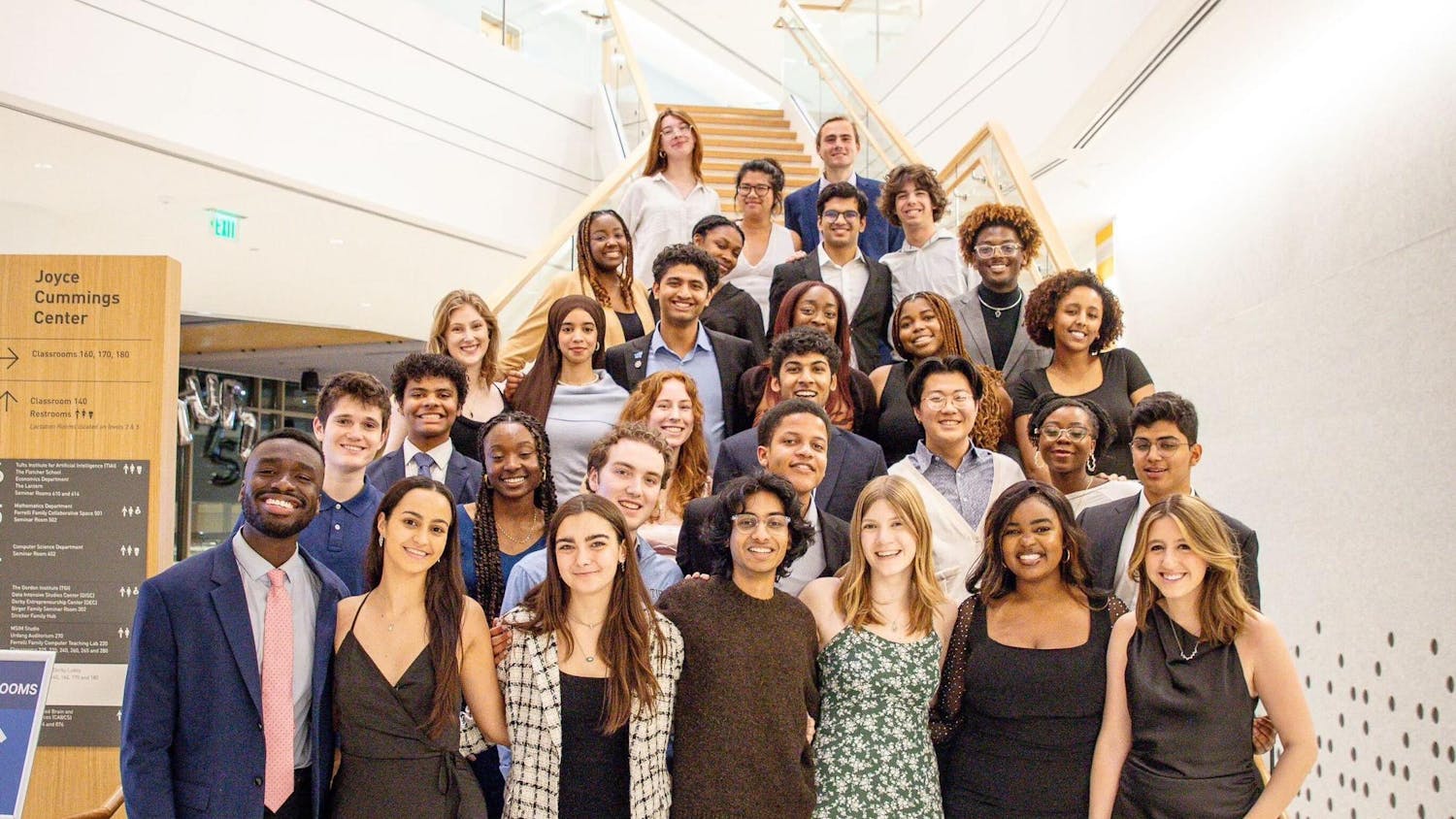The Tufts Community Union (TCU) Senate will not distribute its annual spring semester survey, as it has decided to make the switch from using a private survey provider to collaborating with the university's Office of Institutional Research and Evaluation in designing the survey.
The survey traditionally circulates twice every academic year, attempting to gauge student opinion on current or upcoming Senate projects.
The Senate Student Outreach Committee decided last month against renewing its annual contract with online survey provider Vovici, due to high costs, according to TCU Parliamentarian Dan Pasternack, a senior. The Senate has employed Vovici for almost a decade.
The Office of Institutional Research and Evaluation will next year help develop and circulate the survey instead, Pasternack said.
After choosing to make the switch, the Senate's Executive Board decided to cancel this semester's survey because additional time required by the Office of Institutional Research and Evaluation would mean the results would become available close to the end of the semester — too late for senators to use them in completing their spring semester projects, according to Pasternack.
"Even if we started at the very beginning of the semester, the results would come in too late. Going through [the Office of Institutional Research and Evaluation] will require additional time," he said. "Working with a new organization on a regular basis takes time and will probably add two weeks to a month to the process."
The change will save the Senate money but may necessitate a new system in which it only circulates one survey per year, compared to the traditional two, Pasternack said. The extended amount of time both senators and administrators will spend on designing the survey — more than they have in the past — will likely push this new system into effect.
"We decided that the cost has become too much to pay on a yearly basis. Institutional Research will do the same job better and at a cheaper cost to the student body," he said.
TCU President Sam Wallis, a senior, said the savings would be significant and called the decision a "no-brainer."
"It's a huge savings to the TCU and will result in a better-quality survey with more scientific questions," he said. "I would rather do one solid survey than two that are less professional."
Associate Provost of Institutional Research, Assessment and Evaluation Dawn Terkla will meet with the Senate in the coming weeks to flesh out a contract for the survey's production. She said details about cost have yet to be finalized.
Pasternack and Wallis said the Student Outreach Committee is stepping up efforts to communicate with students in their dorms and through social media such as Facebook and Twitter in an effort to stay connected in the absence of a survey. Both acknowledged, however, that such efforts would not yield data as comprehensive as that usually garnered from the survey.
Pasternack believed that the quality of the survey will improve after the switch from Vovici. Under the old system, the responsibility of writing questions, designing the survey's format, administering it to the student body and analyzing its results fell primarily with the senators.
Though the Senate will still make the final decision about what questions go in the survey and analyze its results, the Office of Institutional Research and Evaluation will help them word the questions and effectively distribute it, a change, Pasternack said, that will significantly improve the quality of the survey.
"With the old format, we were constructing the survey from scratch. We are just students and don't have the skills required to design the best possible survey," he said. "[The Office of Institutional Research and Evaluation] will provide more support and is more skilled at designing these types of surveys."
Terkla said her office was ready to provide that extra support.
"The Senate was using Vovici basically as a tool to get their survey to the public," Terkla said. "It takes human resources and people skills to effectively design and administer a survey. We are providing that person power."
Some senators were frustrated that they will not be able to ask questions of the student body pertaining to their individual projects this semester, according to Pasternack.
"People were generally disappointed, especially those senators whose questions we couldn't fit on to last fall's survey, but when we explain the logic behind the switch, it makes sense to people," Pasternack said.
Wallis said the absence of a survey will not stand in the way of senators working to complete projects.
"Senators who would like data for their projects are typically involved in longer term projects and will presumably continue to work on them even in the absence of a survey this semester," he said. "This decision won't be detrimental and will only help people get better data once the new system is up and running."





